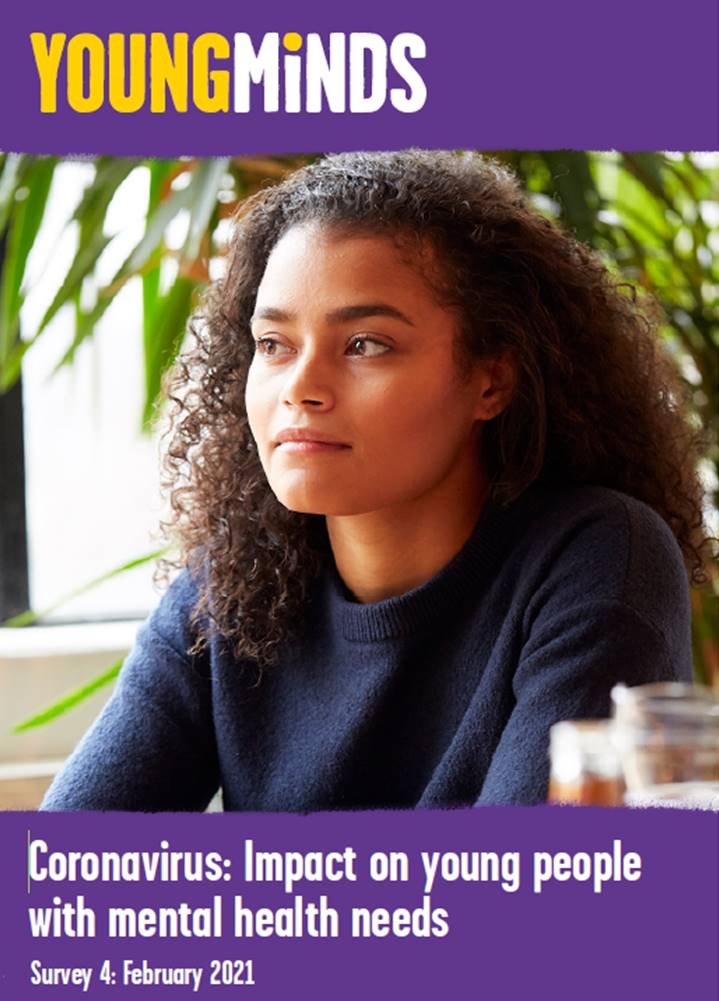Young Minds lockdown surveys and recommendations
Monday 8th March 2021
Young Minds have carried out four surveys with young people into the impact of the pandemic on young people’s mental health.
The latest survey was carried out during the January 2021 national lockdown and shows that many young people have found this lockdown harder to cope with than previous ones.
The pandemic has had a devastating impact on many of the young people we heard from – some told us that they are deeply anxious, have started self-harming again, are having panic attacks, or are losing motivation and hope for the future. We know that some young people will be dealing with multiple pressures, especially those who have been bereaved or experienced other trauma during this time.
When asked what the main pressures were during the current lockdown, respondents mostly spoke of loneliness and isolation, concerns about school, college or university work and a breakdown in routine. Many young people also expressed fears about the future, and although some were optimistic about the vaccine rollout, others were concerned that easing restrictions too soon could lead to further restrictions in the future.
The survey carried out with 2,438 young people aged 13-25, between 26th January and 12th February 2021 shows:
- 75% of respondents agreed that they have found the current lockdown harder to cope with than the previous ones including 44% who said it said it was much harder. (14% said it was easier, 11% said it was the same)
- 67% believed that the pandemic will have a long-term negative effect on their mental health. This includes young people who had been bereaved or undergone traumatic experiences during the pandemic, who were concerned about whether friendships would recover, or who were worried about the loss of education or their prospects of finding work. (19% neither agreed nor disagreed, 14% disagreed)
- 79% of respondents agreed that their mental health would start to improve when most restrictions were lifted, but some expressed caution about restrictions being lifted too quickly and the prospect of future lockdowns.
The charity has made a number of recommendations to Government:
- Make wellbeing is a priority in school catch-up planning, and take a cautious approach to measures that could introduce additional pressure to some young people – such as extending the school day.
- Address the inconsistent mental health support available through schools, by introducing additional ring-fenced funding to enable schools to commission the support they need in this time of crisis.
- Ensure that local charities and youth clubs, which provide vital early mental health support, survive the economic impact of pandemic. And, in the longer term, introduce a national network of community early intervention hubs, which provide open-access mental health support in non-medicalised setting.
- Make sure that all young people know where and how to find support now and that there are smooth pathways between services.


